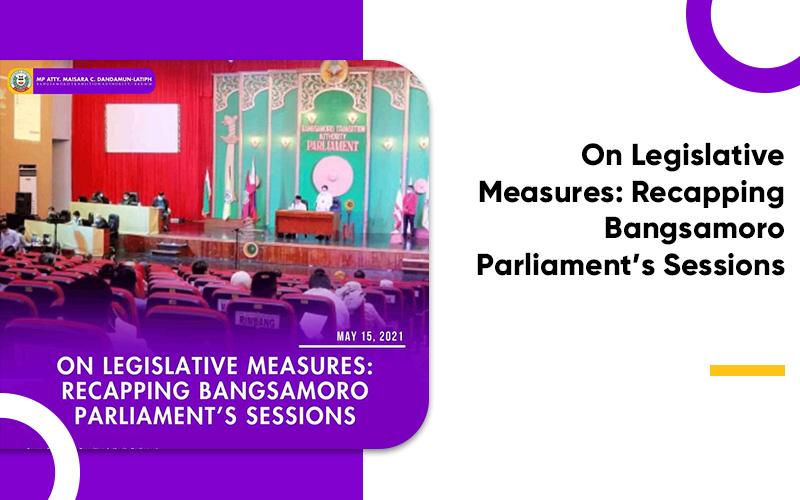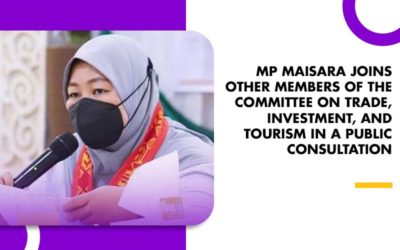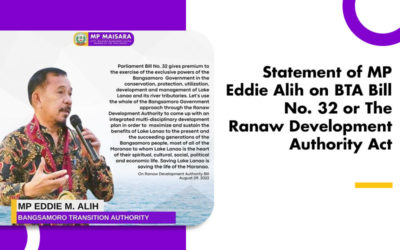More than two years since the establishment of the Bangsamoro Transition Authority, members of the Bangsamoro Parliament accomplished most of its tasks, including the passage of two priority codes cited in the Bangsamoro Organic Law (BOL).
The Bangsamoro Parliament passed the Administrative Code and Civil Service Code in October 2020 and February 2021, respectively, after a series of public consultations and deliberations.
Local Government and Education codes advanced to second reading and are now referred to appropriate committees for final deliberation, the Committee on Rules for Local Government Code and Committee on Basic, Higher, and Technical Education for Education Code.
Other priority bills such as Electoral Code, Revenue Code, and Indigenous Peoples Code are yet to be filed.
Some of the approved bills facilitated the inauguration of commissions on human rights, women, youth, and sports.
To date, the Parliament has passed 17 bills, including:
Bangsamoro Administrative Code;
Bangsamoro Civil Service Code;
Adoption of the Bangsamoro Flag;
Adoption of the Official Bangsamoro Emblem;
2020 Bangsamoro Appropriations Act;
Bangsamoro Human Rights Act;
Bangsamoro Attorney-General’s Office Act;
Bangsamoro Socio-Economic Development Planning System Act;
Bangsamoro Hymn Act;
Bangsamoro Women Commission Act;
Recruitment Agency Regulation Act;
Bangsamoro Youth Commission Act;
An Act Defining the Power of Appointment in the BARMM;
Bangsamoro Sports Commission Act;
An Act Extending the Availability of the 2020 Bangsamoro Appropriations to December 31, 2021;
2021 General Appropriations Act of the Bangsamoro; and
Adoption of the Official Seal for the Bangsamoro Parliament.
A total of 122 resolutions were also discussed and passed in the plenary.
Atty. Pangalian Balindong, Bangsamoro Parliament Speaker, said that the Parliament has been working for the past two years to pass legislative measures that address the needs of the people.
Despite the serious health crisis brought by the pandemic, Speaker Balindong said the Parliament has stepped up its efforts to enact priority legislative measures to operationalize the Bangsamoro government’s foundation.
“The Parliament was able to enact the Administrative Code and the Civil Service Code on time and is currently on track to legislate Local Government Code, Education Code, Electoral Code and Revenue Code,” Atty. Balindong said.
“The adverse conditions and difficulties we are facing did not prevent us in the Parliament from fulfilling our duties, and we also assure the Bangsamoro people that we are all working in the Parliament to accomplish our tasks, especially during the transition period,” he added.
Article XVI of the BOL lists the priorities of the BTA during the transition period: (1) the enactment of priority legislation; (2) determination of parliamentary districts for the first regular election; (3) organization of the Bangsamoro government bureaucracy; (4) full transfer of powers and properties of the Autonomous Regional Government in Muslim Mindanao to the Bangsamoro Government, except those properties, land, and structures located outside of the ARMM; and (5) disposition of the personnel of the ARMM.
There are also about 100 bills and 430 resolutions filed before the Parliament.
The BTA serves as the interim government in the Bangsamoro region during the transition period.
Source: Bangsamoro Transition Authority Parliament (Publication and Media Relations Division, BTA)





